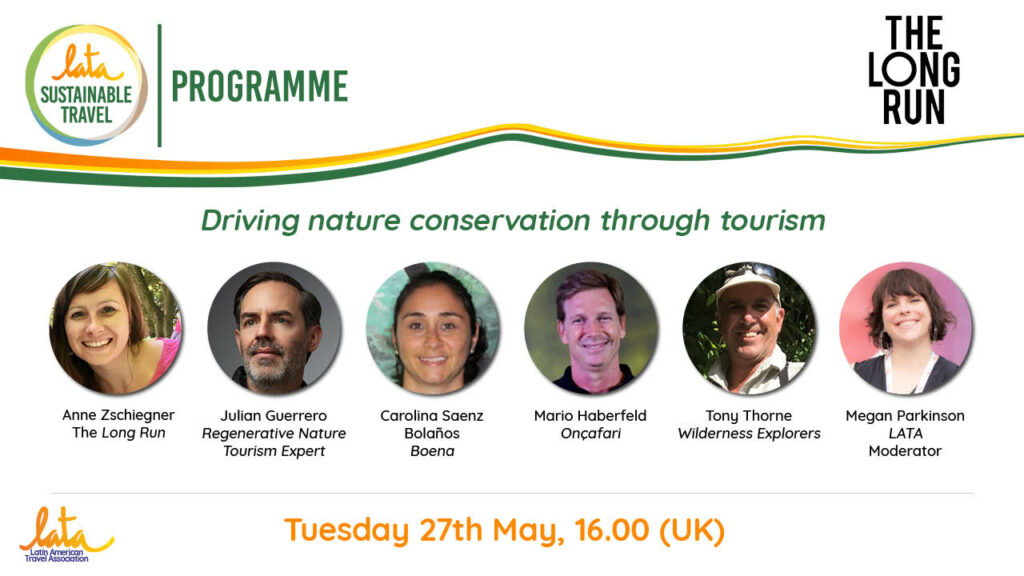Thank you to everyone who joined our webinar this week on how we can drive nature conservation through tourism.
You can watch again here.

Our ten key learnings from the panel discussion are:
-
Tourism as a Conservation Driver: The session emphasised that tourism can drive conservation and vice versa, with diverse stakeholders—including researchers, policymakers, and tour operators—playing essential roles.
-
Colombia’s Policy Leadership: Julian Guerrero shared Colombia’s approach, including a sustainable tourism law combining incentives and regulations, a detailed policy framework, practical implementation tools, and campaigns to inspire conservation, such as the “Colombiamorfosis” campaign.
-
Data-Driven Conservation: Colombia’s “Destino Naturaleza” project, funded by USAID, demonstrated the tangible impact of tourism on biodiversity using rigorous data, satellite monitoring, and ecosystem health metrics.
-
Transformative Community Involvement: Carolina Saenz Bolanos highlighted how former poachers became conservation allies in Costa Rica through jaguar monitoring projects, transforming community perceptions and involvement.
-
Long-Term Local Empowerment: The Costa Rican initiative empowered local and Indigenous communities to co-lead research, educate youth, and expand conservation efforts across private lands.
-
Tourism Infrastructure Enabling Wildlife Protection: Mario Haberfeld discussed Brazil’s Onçafari project, where ecotourism led to increased wildlife sightings, especially jaguars, and empowered rural communities with jobs, education, and conservation awareness.
-
Ecological Corridors and Landowner Engagement: Onçafari expanded its conservation impact through alliances with neighbouring landowners, building a 430,000-hectare ecological corridor in Brazil.
-
Tourism Following Community Conservation: In Guyana, Tony Thorne detailed how Indigenous-led conservation efforts (e.g., protecting arapaima and black caiman) naturally evolved into successful tourism ventures that now fund ongoing conservation.
-
Cultural and Social Benefits: Beyond economics, tourism in Guyana revived cultural pride, preserved Indigenous languages, and promoted intergenerational learning and storytelling about conservation.
-
Creating Demand and Changing Narratives: The panel concluded that tour operators play a vital role in creating demand for conservation-based tourism by choosing sustainable suppliers, educating travellers, and shaping transformative experiences that inspire long-term change.
Thank you as always for our panellists for their time and expertise, as well as Megan Parkinson and Anne-Kathrin Zschiegner for moderating the discussion.